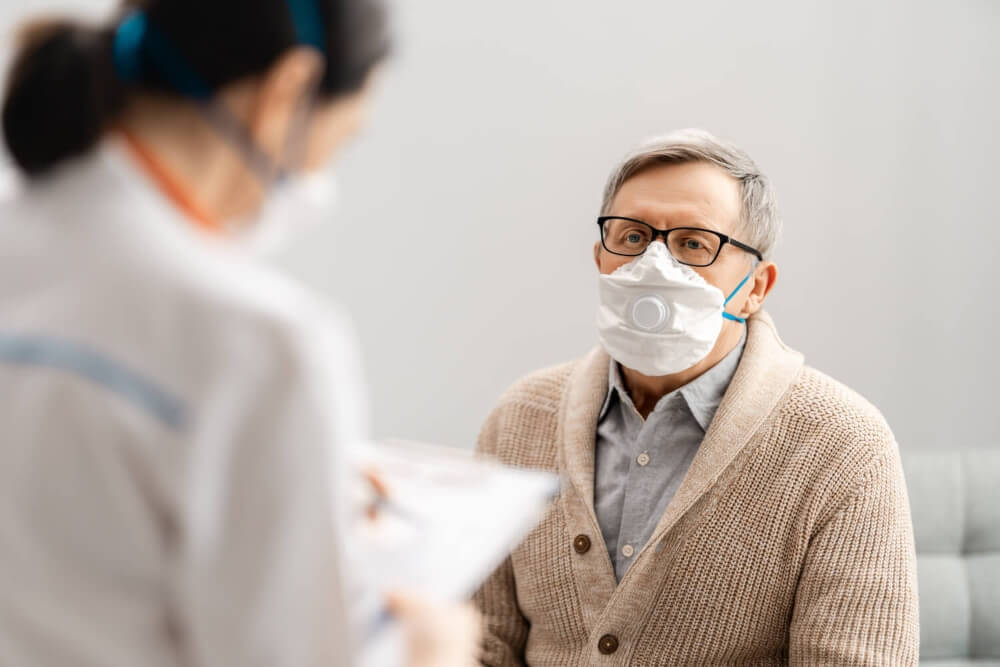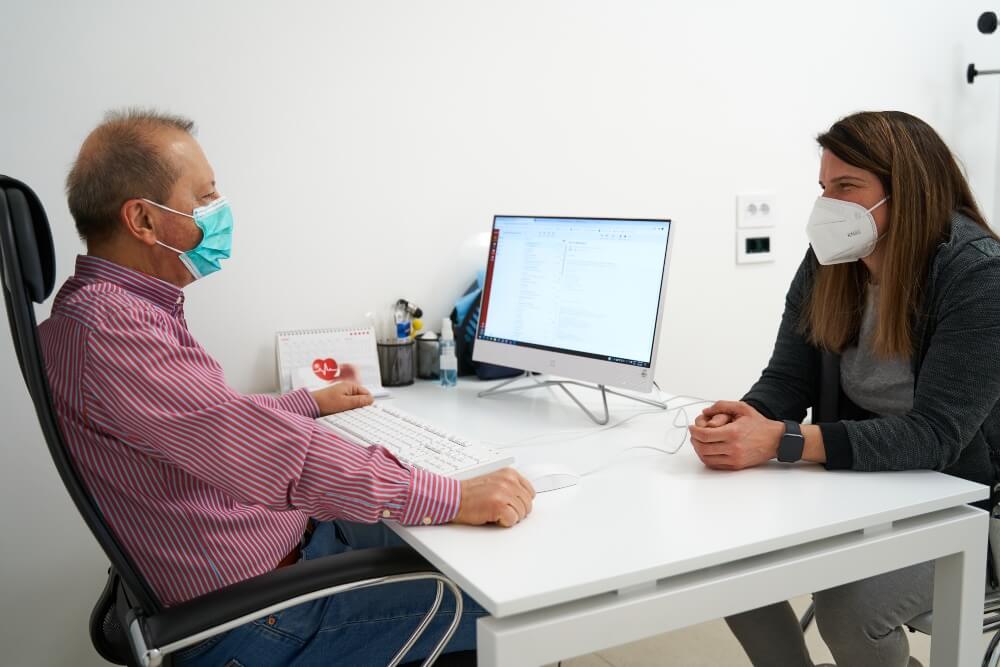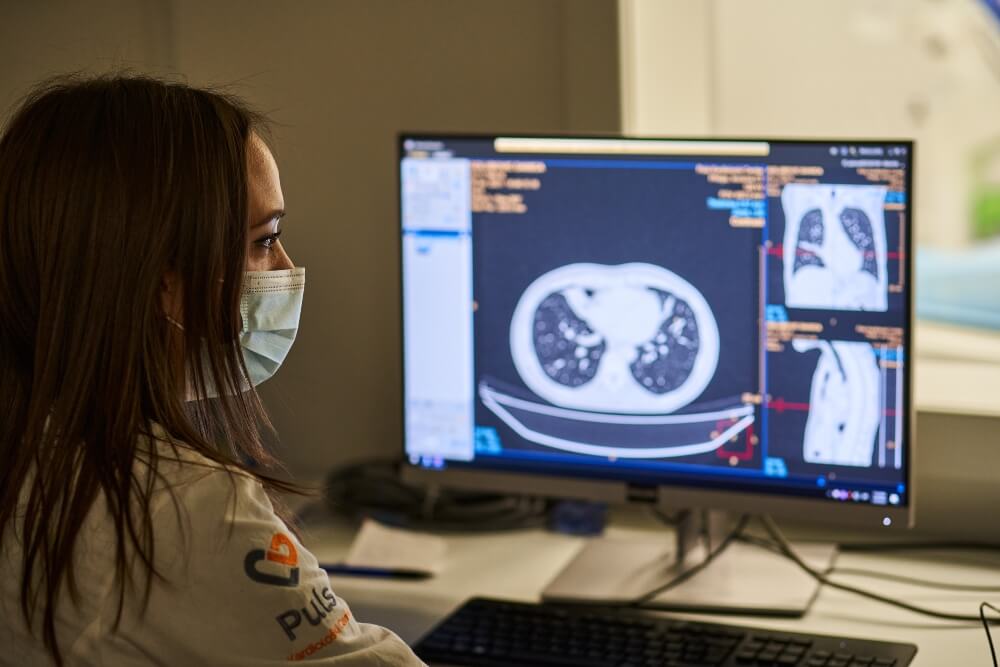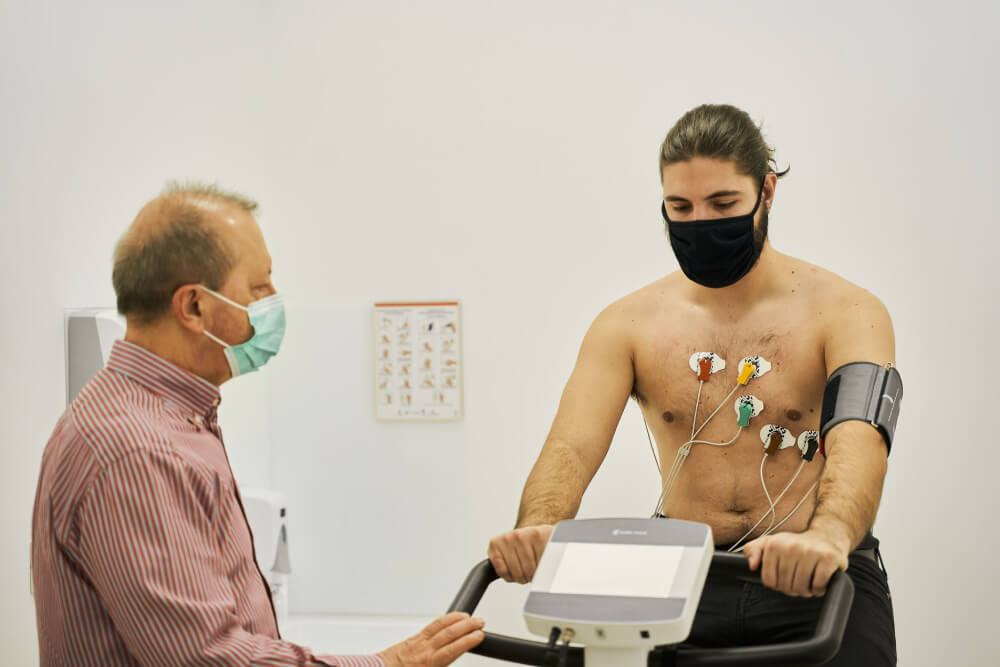Treatment of Long COVID and Post-COVID Patients
The coronavirus pandemic has been going on for more than a year, and the recovery is much longer than with other known viruses. Research is being published all over the world, and our doctors have noticed that some patients, in addition to recovering more slowly, have been showing symptoms that are not a direct consequence of an acute infection of the Covid-19 virus but a consequence of what this virus has done to the body. It’s called long covid. In our country, it is also translated as a long, or more precisely, extended covid.
What Are the Symptoms and What Do Long COVID Patients Complain About?
First of all, patients who have had an encounter with COVID-19 infection complain about:
- shortness of breath
- feeling tired
- difficulty in climbing stairs
- constant sweating
- prolonged cough
- palpitations
- high blood pressure
- brain fog
- fever (37.2-37.5)
- increased D-dimer values
- urinary tract infections
- hair loss
It happens that patients with high blood pressure now have occasionally very low blood pressure.
All this indicates that the heart is also an organ that should be examined for prolonged Covid symptoms. It is necessary to do an ultrasound of the heart because sometimes Covid-19 passes through the heart and displays similar issues as the Coxsackievirus.
Mental fogs can also occur because Covid-19 passes through the central nervous system and triggers certain sensations. There are people who have a fever for days, 37. 1 C°/ 37.2 C ° and that is just another symptom of prolonged Covid. Also, the increase in D-dimer may be one of the consequences as well. This can lead to severe thrombosis or embolism that may not be recognized. That is why it is important to explain to patients how, together with the doctor, they should monitor their condition during the prolonged Covid state, explains MD Stevan Sikimic – a pulmonologist.
Why Does Prolonged COVID Occur?
One of the theories is that the particles of the virus, when it disintegrates, remain in the small intestine for some reason and that the cells of our organism begin to attack our own cells. In order to avoid that as much as possible, one of the recommendations of our pulmonologist is to continue taking probiotics for another month or two after Covid. Patients who have prolonged Covid often have changes in their lungs. Some believe that these are fibrous changes, but according to experience, these changes have not yet reached the stage of fibrosis – permanent scar formation, and that is why we are cautious optimists.
Importance of Breathing Exercises
Based on the patient’s appearance and examination, lung scan, spirometry findings, doctors first recommend starting breathing exercises.
These are gadgets that are on our market and are not expensive. With the coronavirus, the goal is not to exercise the muscles. With a Covid-19 infection, the purpose is to blow into the device several times (say 10 times in five sessions), and lift the ball, because by repeating, the chest expands and the lungs expand as well. As the lungs expand, more blood enters into them, so the natural recovery process is very good. Short walks are also important, which when incorporated with breathing can be extremely beneficial.
Therapy in Long COVID Patients Who Have Severe Lung Changes
Corticosteroids are generally given as therapy for the coronavirus. Therapy is not in large doses of 60-70 milligrams, which are given during an active period of the illness. Smaller doses are administered but over a longer period of time. This is how fibrosis used to be treated. The therapy can be- half a tablet of Prednisone for a month or two months, depending on the patient’s condition, with breathing exercises, and with a lifestyle that is gradually returning to normal. If the patient adheres to this, we can be optimistic, because not every Covid infection will end in pulmonary fibrosis.

How to Regulate Elevated D-Dimer, a Factor That Indicates That There Is a Tendency to Form Blood Clots in the Body?
Therapy is based on the pulmonological experiences of patients with pulmonary thromboembolic disease. Blood thinners are taken for three to six months. The patient starts with subcutaneous injections of Heparin and then switches to oral medications.
What Blood Parameters Should Patients With Prolonged COVID Check Regularly?
It is important that patients, in agreement with doctors, regularly monitor their condition. In case of prolonged coronavirus infection, when it comes to laboratory tests, the following should be checked once a week:
- complete blood count
- leukocyte count
- CRP
- D-dimer
At the Pulse Cardiology Center, we have carefully created the Covid and Post-Covid examination packages performed by our specialists in cardiology, pulmonology, radiology, and general practice.
In that way, we monitor the condition and the therapy that will be modified in relation to it. One of the mistakes that tend to happen is that strong, good medications that dilute the blood are discontinued very early on. Based on the treatment of pulmonary thromboembolism, the therapy should be taken for at least three to six months. We still do not know what is happening in the organism that has been infected with the coronavirus and to what extent and to what molecular level, there are possible disorders of blood coagulation.
Due to all that, at first – every 7, then every 10 days, then every 2 weeks, laboratory analysis of blood is mandatory, even more often if there are new symptoms. Prolonged fever should not be an alarm if it is 37. 1 C°, 37.2 C°, 37. 3 C °, because there are cases when it drops after taking probiotics. You shouldn’t use antibiotics for longer periods of time but rather check it is an ordinary urinary tract infection because that can also be one of the reactions of prolonged Covid.
Post-COVID Cardiac Examination
It is important for the patient to contact a cardiologist and perform an ultrasound of the heart. That way, we will check if any changes in the heart occurred. If the accelerated heart rate or increased pressure is prolonged, the cardiologist will assess whether they should do additional diagnostics or prescribe a certain therapy, points out Dr. Goran Popović – a cardiologist.
Continue With Vitamins and Minerals and Add Certain Products to Your Diet
Goat products, whether it is goat whey, goat cheese, or goat milk, along with honey, honey products, royal jelly, perga, are all ingredients that should be part of the patient’s diet. Ordinary yeast or brewer’s yeast is an excellent source of vitamin B, which is very important, especially for those for whom Covid has caused neurological problems. Most people who contract Coronavirus are in a terrible spasm because of the fear they have survived. As for physical activities, they should not engage in any heavy physical work for at least six months, but short walks are obligatory, as much as the organism allows. If possible, we advise the patient to change the environment, to go out in nature, to rest, to relax. It is necessary to sleep more, until complete recovery.
Specialists in the Pulse Cardiology Center believe that it is up to experienced pulmonologists to make some kind of protocol, a guide, for patients with prolonged Covid. Patients must consult doctors and respect and implement their therapy and advice. This should especially be done by younger people who are in full strength and employed because they can have more severe forms of the disease. According to our knowledge, there are 10-15% of patients with prolonged Covid or long Covid in relation to the overall number of coronavirus patients, while with all others, the healing process is gradually getting better.





